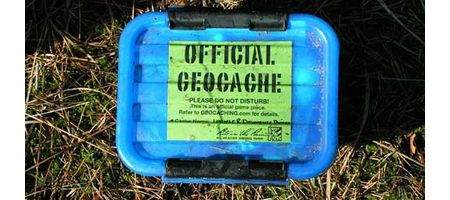Geocaching – a gentle pursuit, for children and men with beards, right? Not in the small English market town of Wetherby, it seems, where the activity led to a full-scale terrorist alert.

Geocaching, for those that don’t know, is a sort of treasure hunt carried out using GPS and cryptic clues. At each location, there’s a small container containing a logbook and often a small gift for the next finder.
But coffee shop owner Karen Brittain had never heard of geocaching. And when she saw a man hide a sealed plastic box under a flower planter in the street and then walk away rapidly talking on a cellphone – well, she was taking no chances. She called the police, who sealed off and evacuated the entire area, before bringing in and deploying bomb disposal robots.
The box – along with some rather pretty flowers – was destroyed in a controlled explosion.
After the explosion was reported, the cache owner, who wishes to remain anonymous, came forward and was cautioned.
“I have got off lightly, but less so than the poor geocacher who visited the cache yesterday and was arrested,” he says.
“When I asked as to his fate, the policeman said it would be wrong to tell me what had happened to him but that he had been dealt with without going to court, but it would likely affect his future career. Read into that what you will.”
But the local police force has defended its actions, blaming the geocachers for the chaos.
“The device in Wetherby caused massive disruption for a period of about four hours,” it says. “An estimated emergency services bill is around £35,000, not including loss of revenue for businesses who had to shut for most of the day.”
It’s asked geocachers to be careful about where they hide their boxes, saying they should avoid main roads and urban areas – neither of which applies to Wetherby, of course.






